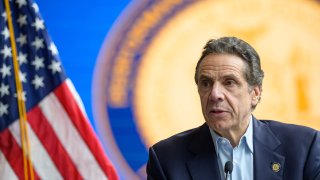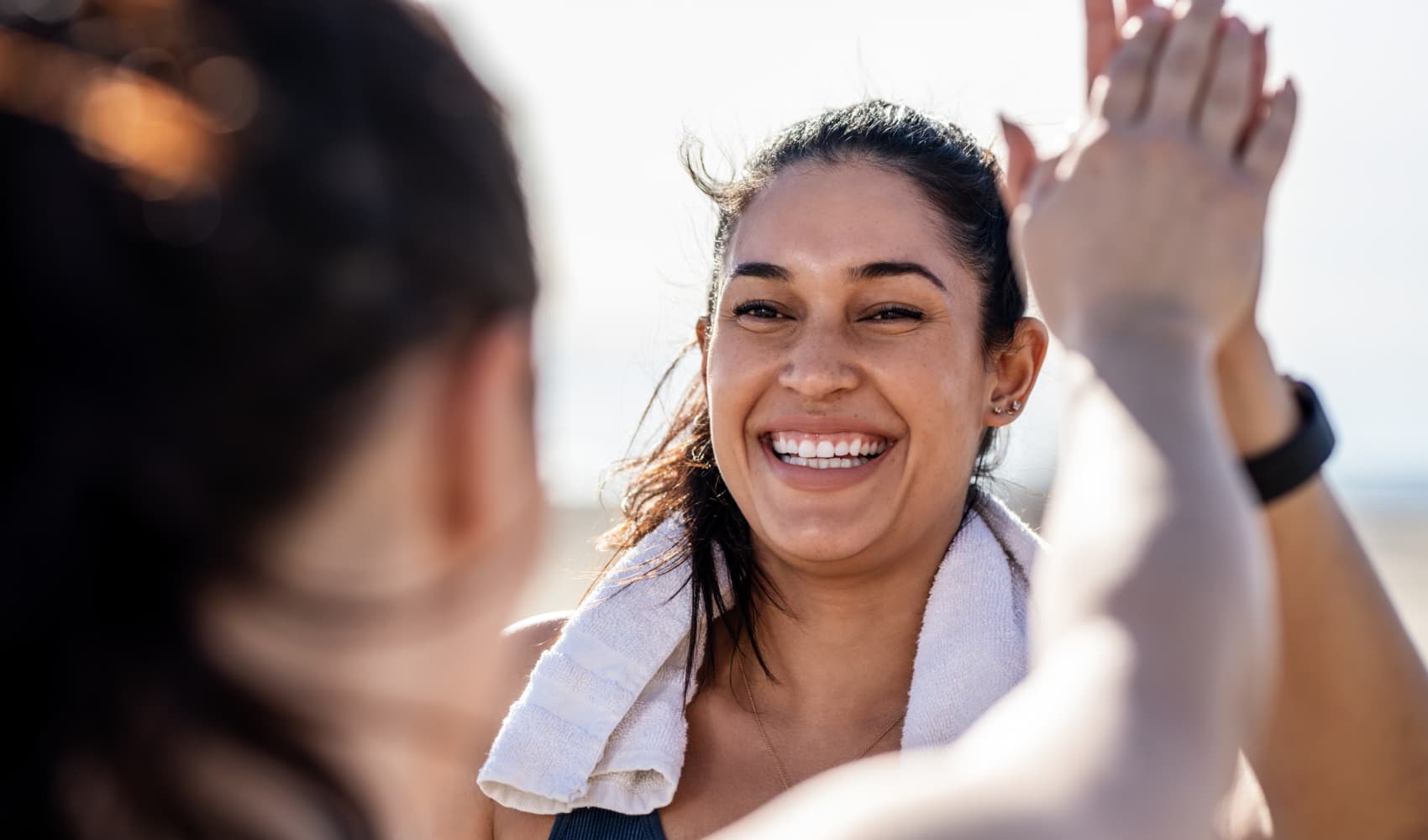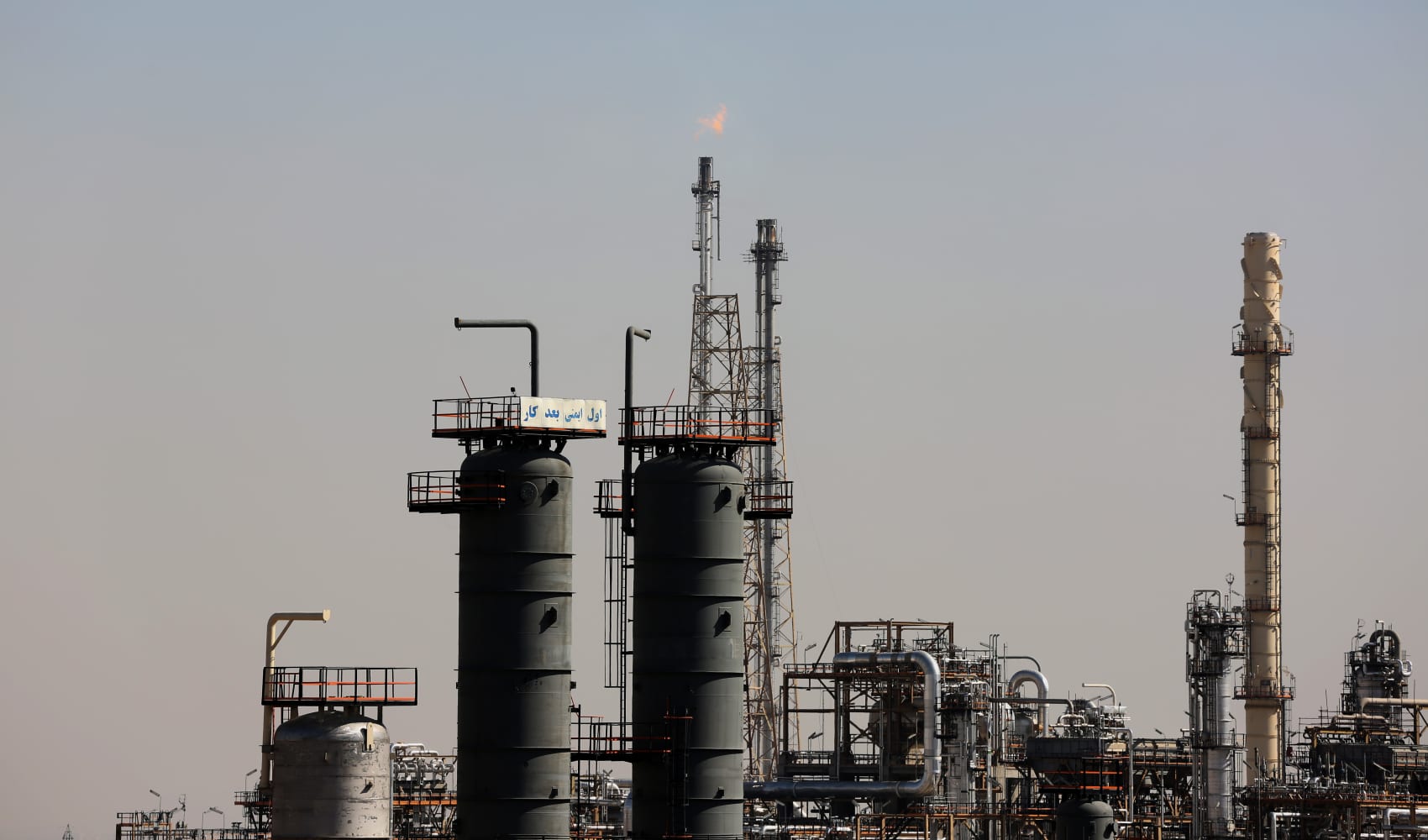
- New York Gov. Andrew Cuomo announced Friday that restaurants in New York City will be forced to close their indoor dining sections beginning Monday.
- The Democratic governor said restaurants can continue to operate outdoor dining areas and offer take-out and delivery.
- New York is expecting 170,000 doses of Pfizer's Covid-19 vaccine on Sunday or Monday, Cuomo said.
New York Gov. Andrew Cuomo announced Friday that restaurants in New York City have to close indoor dining sections as new daily coronavirus cases across the state recently eclipsed 10,000 for the first time since the spring and Covid-19 hospitalizations soar.
The Democratic governor said restaurants can continue to operate outdoor dining areas and offer take-out and delivery beginning Monday. Cuomo warned earlier this week that the state could close indoor dining if the city's hospitalization rate didn't stabilize.
Get Philly local news, weather forecasts, sports and entertainment stories to your inbox. Sign up for NBC Philadelphia newsletters.
"You're going to see a bad December, a bad January. How bad is the question," Cuomo said at a press briefing.
He said the outbreak won't "end" until the vaccine is broadly distributed, which could be June or could be September. "Between today and June, that is a long six months," he said.
Cuomo cited additional warnings from the Centers for Disease Control and Prevention issued last week that cautioned against "exposures at nonessential indoor settings and crowded outdoor" settings, saying they posed a "preventable risk to all participants," according to a slide presented at the briefing.
Money Report
"In New York City, you put the CDC caution on indoor dining, together with the rate of transmission and the density and the crowding, that is a bad situation. The hospitalizations have continued to increase in New York City," Cuomo said.
The move marks a notable reversal of the state's reopening plans since it allowed New York City to resume indoor dining at 25% capacity on Sept. 30. Restaurants in the Big Apple were forced to stay afloat over the past several months through outdoor dining and take-out, even as cases declined over the summer and early fall. Cuomo and New York City Mayor Bill de Blasio postponed indoor dining's return in early July as other states across the U.S. reported worsening outbreaks.
The Empire State governor, however, pushed for schools to remain open, saying they are much safer. He said the positivity rate, or the percentage of Covid-19 tests returning positive, "tends to be lower" in schools compared with the surrounding community.
"My point is: If it is safer for the children to be in school, then have the children in school. If it's safer for the teacher to be in school, then have the teacher in school," Cuomo said.
The state is now concerned about what Cuomo calls "living room spread." That's because statewide contact tracing data shows nearly 74% of new Covid-19 cases are coming from households and social gatherings, Cuomo said. Restaurants and bars accounted for 1.43% of new cases while gyms caused less than 1%.
"We may be seeing the tail end of the Thanksgiving surge, if you will, but we're about to walk into the Hanukkah surge, and the Christmas surge, and the Christmas week surge, and the Kwanzaa surge and New Years Eve and New Years Day," Cuomo said, adding that health officials are hoping to see a "stabilization" by mid-to-late January.

New York is reporting an average of roughly 4,653 people hospitalized with Covid-19, a 30% increase compared with a week ago, according to a CNBC analysis of data compiled by the COVID Tracking Project, an independent volunteer organization launched by journalists at The Atlantic.
However, the "situation in the hospitals is better than it has been in the past," Cuomo said. Compared with the spring, when the virus first swept through New York and overwhelmed its hospital systems, there are now 30% fewer people in the state's intensive care units and 50% fewer people intubated, Cuomo said. The median hospital stay has also dropped from 11 days in the spring to now five days.
New York is expecting 170,000 doses of Pfizer's Covid-19 vaccine on Sunday or Monday, Cuomo said. The doses could be granted emergency authorization from the U.S. Food and Drug Administration at any moment after a key panel overwhelmingly endorsed the shots Thursday evening.
Another highly anticipated vaccine from Moderna could be given the green light in the coming weeks. Cuomo said the state expects 346,000 doses of that vaccine the week of Dec. 21.
"The vaccine is coming, and we're ready to administer it," Cuomo said.






